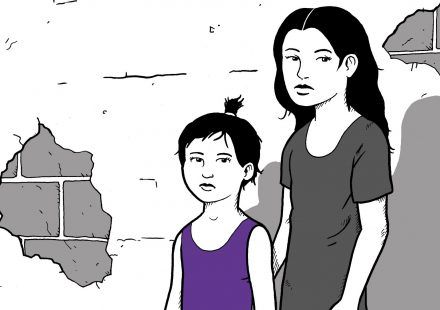PRI and IPJJ publish new resource addressing the needs of girls in criminal justice systems

Age, gender and their small numbers make girls one of the most vulnerable and neglected groups involved in criminal justice systems.
While far from being a homogenous group with characteristics and needs that vary between countries, we know that there are many issues that they face in common. These include the fact that they may be primary carers for children (their own or siblings), they have specific health, hygiene and sanitary needs, they are at a high risk of substance abuse, self-harm, metal health issues, HIV and other sexually transmitted diseases, they may have experience past physical, emotional or sexual abuse, and they are at risk of violence whilst in detention.
Relatively little is known or understood about offending by girls, their specific needs whilst in detention, or about what is effective in terms of gender-sensitive rehabilitation and social reintegration measures. However, there are clear steps that States and those working with girls in the criminal justice system can take to ensure that their rights are protected and promoted.
PRI and the Inter-agency Panel on Juvenile Justice (IPJJ) have produced a new briefing paper Neglected needs: Girls in the criminal justice system to examine the specific challenges faced by girls in contact with the criminal justice system and makes recommendations for strengthening the protection of their rights.
It explores how girls face discriminatory treatment in terms of the type of offences for which they are detained, their access to fair trial guarantees, and the lack of suitable alternatives to detention. It then looks at some of the specific challenges faced by girls in detention and the international and regional standards in place to address these, focusing on:
- protection from violence
- access to adequate healthcare
- provision of rehabilitation and reintegration services
- access to effective remedy.
The paper concludes PRI’s series of briefings on justice for children, with the previous instalments as follows:
- Ten Point Plan on Fair and Effective Criminal Justice for Children
- African Committee of Experts on the Rights and Welfare of the Child
- Independent monitoring mechanisms for children in detention
- Children with parents in conflict with the law
- The minimum age of criminal responsibility
- The right of children deprived of their liberty to make complaints
The paper also forms part of PRI’s Bangkok Rules ‘Toolbox for Implementation’ which contains the following resources: